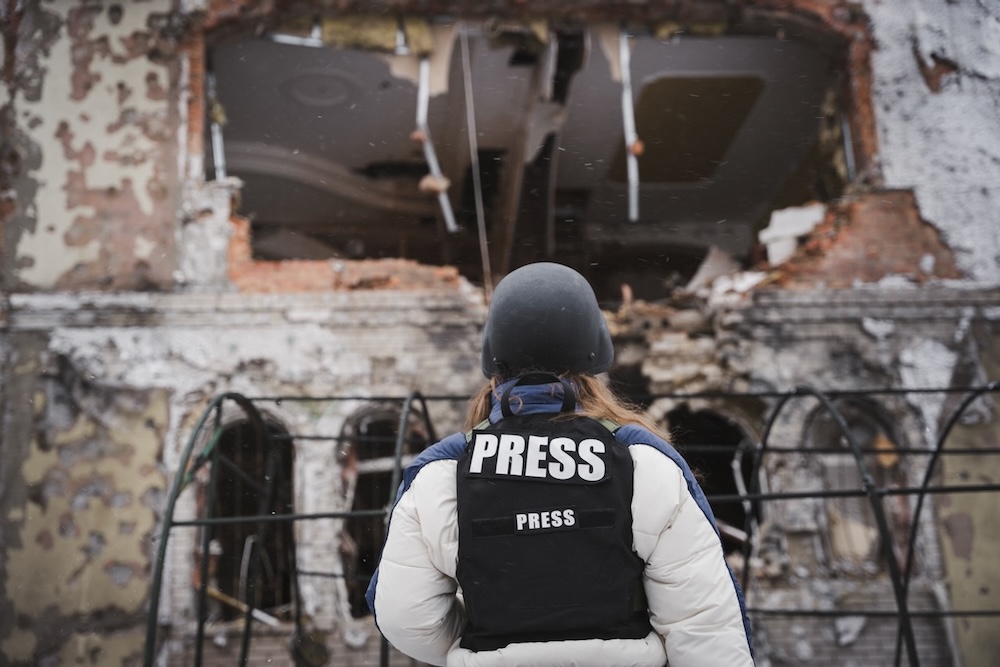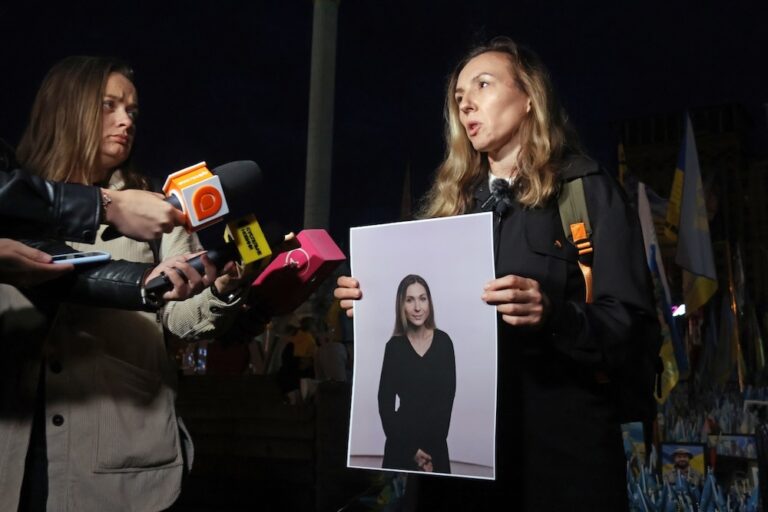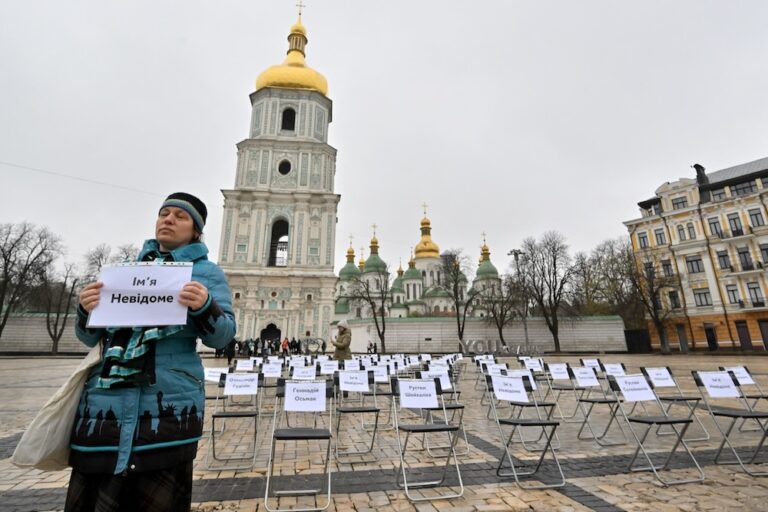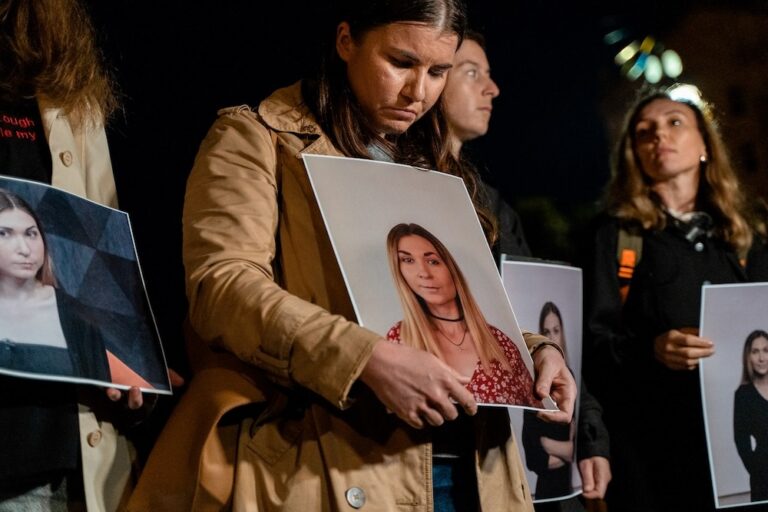Threats were the most common attack on journalists in Ukraine in January, with press outlets continuing to receive anonymous bomb threats via email.
This statement was originally published on imi.org.ua on 6 February 2025.
The Institute of Mass Information experts recorded 12 freedom of speech violations in Ukraine in January, according to the IMI’s monthly monitoring study “Freedom of Speech Barometer”.
Russia’s crimes (8 cases) included death threats, intimidation, and cyber attacks.
One media professional turned soldier was killed in action in this period:
- Ruslan Hanushchak, a military photographer and cameraman from Ivano-Frankivsk who served in the UAF Mechanized Brigade No. 92. His death was reported in January 2025.
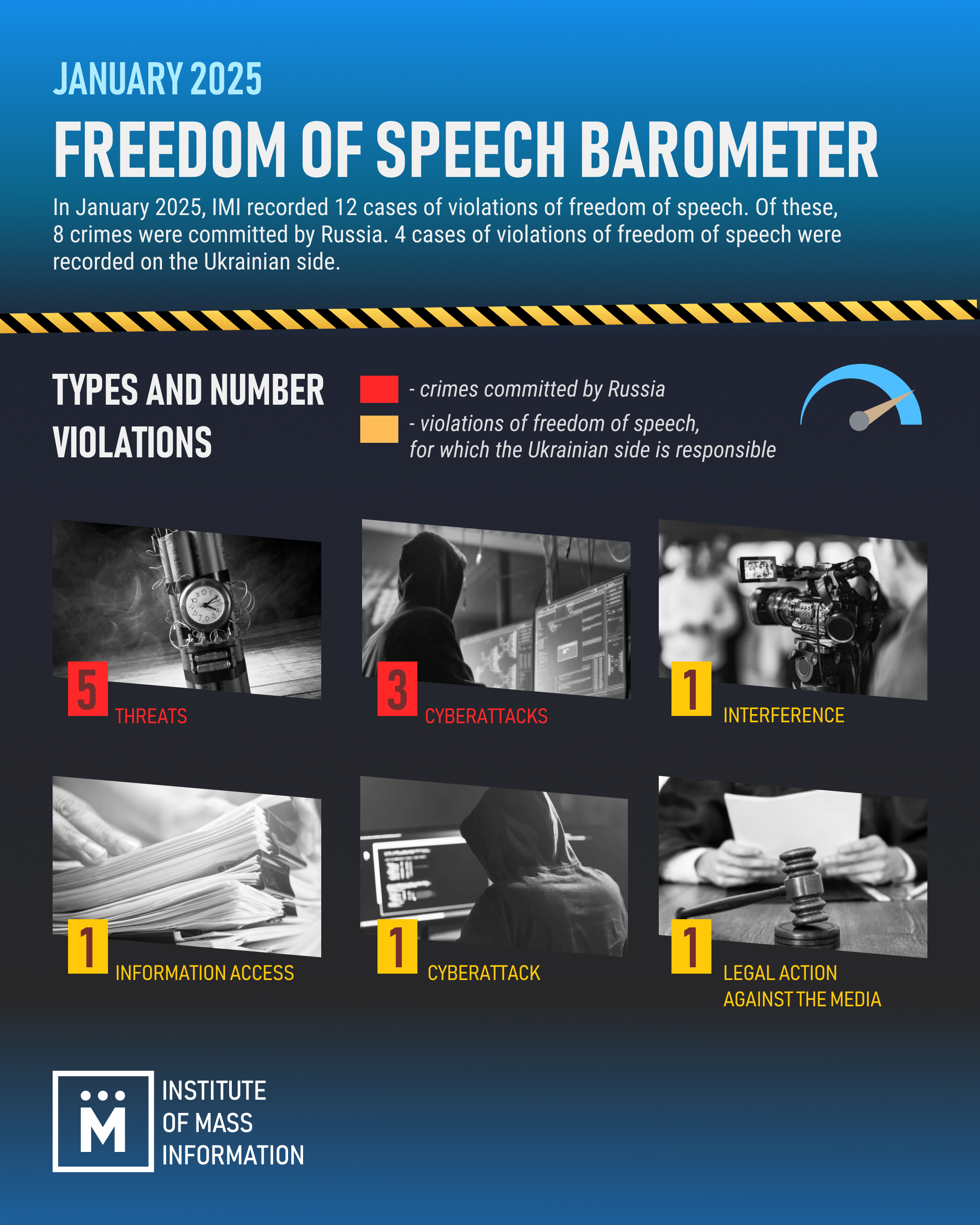
Freedom of speech in Ukraine in January 2025
Journalist Vitaliy Portnikov faced online harassment and reported that his assassination was “in the works” following a smear campaign targeting him by Russian and pro-Russian agents. The campaign was allegedly triggered by an excerpt from his interview with Natalia Baliuk last year. He said that Russian and pro-Russian agents were using this excerpt to harass him, trying to frame it as him defending an “imaginary ‘nobility’ that should not be fighting in the army.” According to him, the excerpts from this interview are being used to manipulate people, fostering an environment of hatred around him; Portnikov says he has received death threats.
In January, journalists continued to receive anonymous emails with bomb threats targeting their offices and other facilities across Ukraine. Namely, such letters were received by ZHAR.INFO journalist Alyona Bereza; Rayon.in.ua journalist, West Media Forum coordinator Olha Bulkovska; the Pershyi Kryvorizkyi team, etc.
The FREEDOM TV website sustained a mass DDoS attack. The TV channel suspects Russian hackers to be behind the incident. The attack occurred in two waves. The website received over 5 million requests in a short time, coming from almost 80 countries, and continued to work with minor complications.
The IMI also recorded four cases of freedom of speech violation that were not related to Russia’s war on Ukraine. These included instances of obstruction of legal reporting, denying access to information, cyber attacks, and a lawsuit against a media outlet.
The Zhytomyr.info crew faced obstruction in Teterivka community (Zhytomyr oblast) when the parents of a local school’s students called the police on the journalists for filming a bomb shelter. The parents explained that they were concerned for the safety of their children and believed that the journalists had no right to film the bomb shelter. The police officers who arrived on site confirmed that the journalists were allowed to film.
The Dolynska City Council (Kirovohradska oblast) ignored an information query from Tochka Dostupu, who wanted to know the details about the Council purchasing an Opel Combo car for mobile support teams for domestic abuse victims. The news outlet is preparing a complaint with the Verkhovna Rada Commissioner for Human Rights and plans to appeal the Dolynska City Council officials’ inaction.
Ukrainian Pravda reported that their YouTube channel had been hacked. The UP channel was livestreaming Bitcoin advertising following the hack. The news outlet later fully restored their channel. The team said that on the day before the attack hackers had posed as CERT-UA to try and access the editorial servers hosting financial documentation through the remote control tool AnyDesk.
